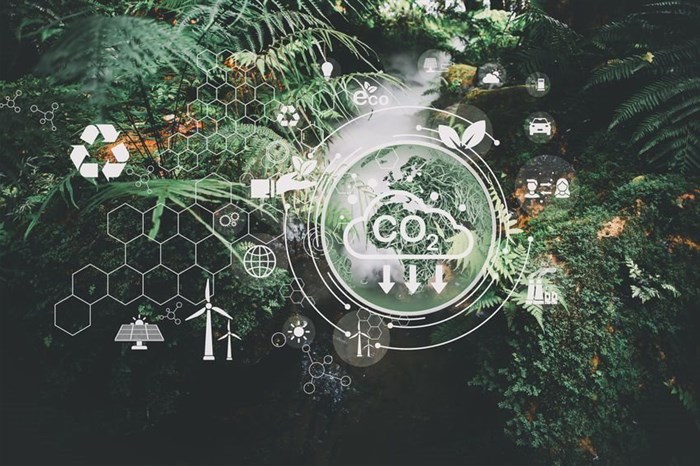
Related
Top stories






More news


Marketing & Media
Ads are coming to AI. Does that really have to be such a bad thing?














Article 6 of the Paris Agreement was introduced to allow countries to voluntarily cooperate with each other to achieve emission reduction targets set out in their Nationally Determined Contributions (NDCs). Under Article 6, a country (or countries) will be able to transfer carbon credits earned from the reduction of their greenhouse gas (GHG) emissions to help other countries meet their climate targets. Such credits are known as Internationally Transferred Mitigation Outcomes (ITMOs).
The Paris Agreement requires all member countries to self-determine their NDCs, with a framework that aims to meet the top-down goal of a "below two degrees" temperature increase, with a temperature rise limit of 1.5 degrees above pre-industrial levels. All NDCs are public knowledge, ensuring that countries can be held accountable for not meeting their respective pledges.
During the United Nations Climate Change conference, COP26, in Glasgow in 2021, a compliance committee was established to facilitate progress towards the top-down goal, and the principle of Global Stock Taking (GST) was introduced, requiring countries to report on their progress towards the top-down goals every five years. This is intended to be a facilitative and non-punitive transparency framework to track progress. An Article 6 rulebook was also introduced to act as an accounting mechanism.
In general, the African Union Agenda for 2063 prioritises, among other things, the development of a low-carbon African economy. At COP27, a group of African countries launched the African Carbon Markets Initiative with the aim of eventually producing 300 million carbon credits annually. The initiative seeks to unlock $6bn in revenue and create 30 million jobs by 2030.
Several African countries intend to participate in the various Article 6 mechanisms under development. The West African Alliance on Carbon Markets and Climate Finance (WAACMCF) is a regional collaboration aimed at making carbon markets accessible to West African countries and ensuring that the least developed countries also benefit from the implementation of Article 6 mechanisms.
Ghana has taken the first step in benefiting from the Article 6 mechanisms by entering into an ITMO agreement with Switzerland. The governments of both countries signed a bilateral agreement that sets out the conditions for cooperative approaches to carbon emission reductions under the Paris Agreement. This has enabled the implementation of green and low-carbon solutions in Ghana, with the first project focusing on clean cooking and solar lighting. ITMO agreements such as this are expected to lead to further innovative climate financing solutions in future years.
South Africa has yet to enter into any ITMO agreement, but there is a likelihood that the Climate Change Act will come into operation within the next couple of years. There is a possibility that the Department of Environment, Forestry and Fisheries (DFFE) will conduct further consultations with the public on the content of the Bill within the next six months. While this is not directly related to carbon markets, this Bill is an important step in domestic climate regulation and will have implications for the NDC and the use of ITMOs, with likely feedback loops into the carbon market.
African countries are building on existing projects and activities established under the Clean Development Activities Act, but they need support from developed nations. An example of such support is Germany's Climate Change Initiative, which assisted the East Africa Alliance to publish a guideline for Article 6 negotiations for member parties, including Burundi, Ethiopia, Kenya, Rwanda, Sudan, Tanzania and Uganda.
The main focus of emerging market laws around NDCs has been on the key emitting sectors, namely thermal energy generation, waste, industrial processes, forestry and agriculture, with the majority of these laws implementing the cap-and-trade approach.
This approach imposes a cap or quota on emissions that an entity in a relevant sector is allowed to emit over a certain period. Although the implementation of emerging laws differs, with some markets moving more quickly than others, most are focused on building NDCs and establishing pilot projects, with broad implementation expected by 2035. Broadly, all the emerging laws are aimed at enabling domestic emission reduction projects and setting out authorisation procedures.
Several laws have already been implemented, stipulating the minimum process for domestic offset credits to support the domestic offset industry and levies around emission reduction transfers. In many cases, a share is taken by the relevant government to trade in its own right. A share of the levy or profit share, an approximate 10%–20% cut on the achieved reduction, is then held to create a buffer for wider NDC use in that specific country. In 2022, Gabon implemented laws whereby a share of the levy is taken by the government to trade in its own right.
There is broad consensus that in order for a domestic emission reduction system to work, governments should ensure that the achievement of reductions is available domestically first, before enabling the export of such reductions. It is still unclear at what point domestic emission reductions will be considered to have been achieved in order to implement the export of such reductions. Due to the current uncertainty, country-by-country policy due diligence will be critical for long-term deals and legal due diligence should be conducted around the applicable laws and policies on climate change and what the establishment of various climate change bodies will mean.
Getting through the period of uncertainty to a point where an authorised project is capable of claiming the credits and the adjustments that are available is a valuable outcome for any project, as well as for its investors and end-users. From a transition perspective, the move to implement Article 6 is an exciting time for carbon markets.